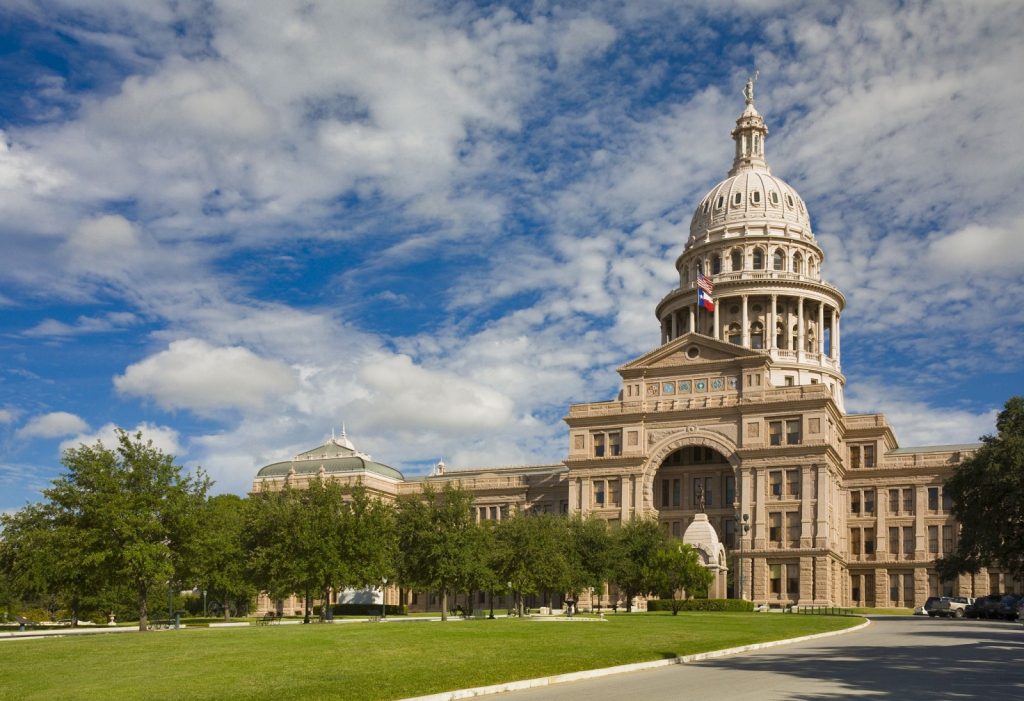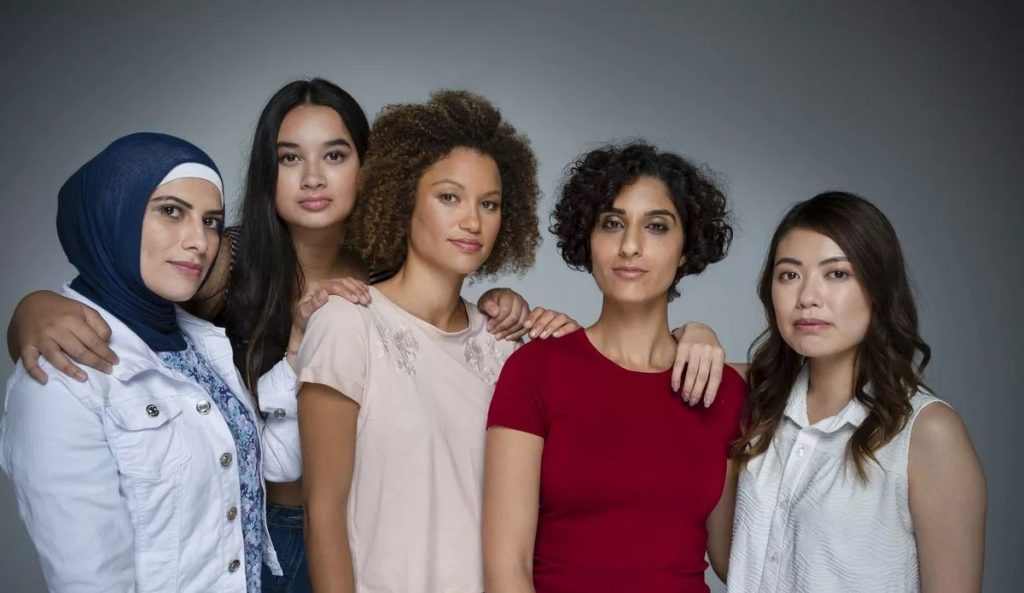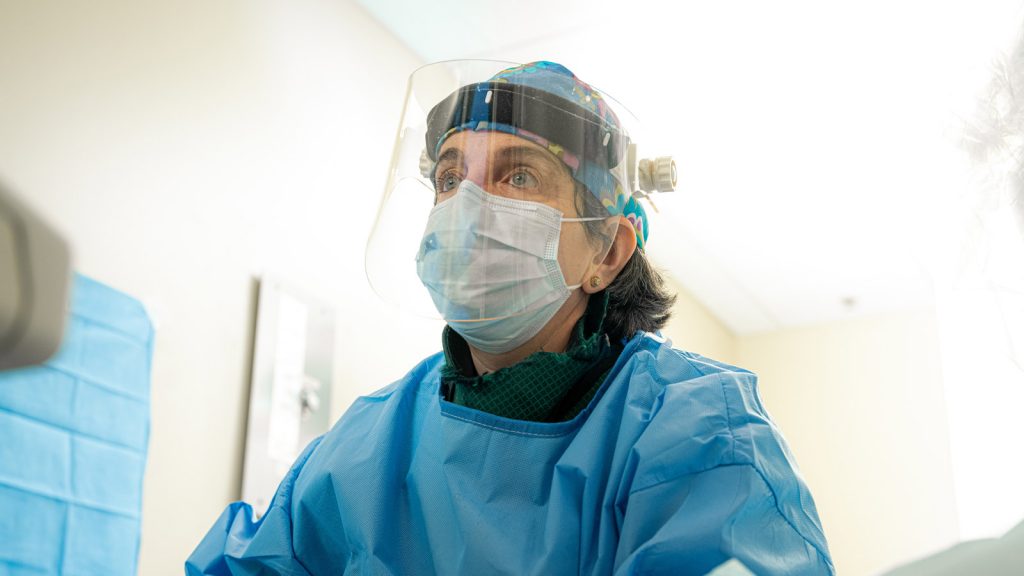On September 1, 2021, Texas became the 9th state to have a designated uterine fibroid awareness month, joining California, Florida, Georgia, Maryland, New York, Pennsylvania, South Carolina, and Virginia. On top of that, the City of Dallas and Dallas County officially followed suit in recognizing July as Uterine Fibroid Awareness Month. This amazing accomplishment did not happen overnight. It was thanks to the time and efforts of many individuals, spearheaded by Texas fibroid specialist Dr. Suzanne Slonim.
As the founder and medical director of Fibroid Institute Dallas, Dr. Suzanne Slonim is dedicated to educating women about fibroids and their treatment alternatives, including Uterine Fibroid Embolization (UFE). She has successfully completed thousands of UFE cases—addressing this prevalent and costly women’s health issue head-on to give patients a new lease on life. And yet, uterine fibroid research and awareness programs nationwide remain woefully underfunded and, at times, swept under the rug. It is for this reason Dr. Slonim felt it was time to educate and inspire lawmakers, too.
Dr. Slonim stepped beyond her facility to bring this important topic to the doorstep of legislators in Texas. As a result, State Representative Senfronia Thompson presented the legislation for Texas House Bill 1966—designation of July as Uterine Fibroids Awareness Month and House Bill 1967—Improved Uterine Fibroid Education and Research. Both bills were signed by Texas Governor Greg Abbott and officially became law on September 1, 2021.

“Millions of women suffer from fibroids, including 80% of Black women,” Dr. Slonim said. “Since many women don’t know fibroids may be the source of an array of symptoms, it became clear that we had to raise awareness and identify resources to address this critical health issue. House Bill 1966 institutes July as Uterine Fibroid Awareness Month, encouraging conversations, media coverage, and events about fibroids. Meanwhile, House Bill 1967 creates a state-wide database about fibroids in Texas. This database will expand knowledge. It can be used to find ways to achieve earlier diagnosis, better treatment options, and eventually, find a cure for uterine fibroids.”
She added, “My hope is that increased attention on fibroids and their symptoms will eradicate the stigma of talking about menstrual symptoms and help women make informed decisions about their healthcare. The challenges of making more women aware of fibroids and their symptoms can be daunting but are not insurmountable.”
Why is Fibroid Awareness in Texas So Important?
Fibroids are benign tumors that develop from the muscle tissue of the uterus. They affect 70-80% of all women during childbearing years and disproportionately impact women of color. 80% percent of Black women will develop fibroids by the time they are 50 compared to 70% of white women.
Fibroids can cause a variety of symptoms, from pain, fatigue, infertility, and miscarriages. While some women don’t experience any symptoms, many do. Some of the more common life-interrupting symptoms include:
- Painful periods, debilitating cramps, pelvic pain, and pressure
- Heavy or abnormal menstrual bleeding
- Painful intercourse
- Fatigue and weakness
- Bloating or swelling in the lower abdomen
- Back or leg pain
- Urinary frequency
- Constipation, diarrhea, and rectal discomfort
Dr. Slonim says the problem is that many women don’t know what fibroids are, how their lives can be dramatically affected by them, and that they are typically the source of an array of symptoms that can easily be confused or blamed on “typical women’s health issues.” In many cases, women will simply suffer in silence and normalize their symptoms when early intervention can make a difference. It became clear that raising awareness and identifying resources to address this critical health issue is extremely impactful to the lives of many women.

Behind The Scenes on Fibroid Awareness in Texas
The Uterine Fibroid Awareness month campaign kicked off in early August 2020. Dr. Slonim was scrolling through her emails when she came across one that said, “Senator Kamala D. Harris…introduced the Uterine Fibroid Research and Education Act, legislation to initiate crucial research and education in relation to uterine fibroids and ensure women get the information and care they need.”
She proceeded to contact others in her network she thought could guide her in getting connected with the Senator’s endeavor. A friend in San Jose, California, Laura Justus Wolford, became the link to connect her with then-Senator Harris’ office. Laura wasn’t a public official, but she was a deeply engaged community leader, and she happened to live down the street from Congresswoman Zoe Lofgren. Thanks to Congress member Lofgren’s understanding of the importance of Dr. Slonim’s effort, Lofgren’s office connected her to the person who helped draft the proposed legislation.
Momentum was starting to build when Harris was invited to run for Vice President of the United States of America. Her attention to fibroids was diverted, but that didn’t stop Dr. Slonim. In fact, there was not a friend or colleague that didn’t rise to the occasion. Her friend Suzanne Smith suggested that she focus first on local impact. Dallas County Treasurer Pauline Medrano jumped on board and opened doors to media and other elected officials. Most importantly, she offered mentorship.
As Dr. Slonim said, “Then one day, I was talking with my friend Dr. Froswa’ Booker-Drew and was telling her about the endeavor. She put her coffee down, picked her phone up, and connected me with Texas House Representative Lorraine Birabil. With her insight, passion, and enthusiasm, there was no turning back. Representative Birabil set the strategy for going local and connected us to the legendary Texas House Representative Senfronia Thompson, the longest-serving woman and African American in the Texas legislature history. With so many women of color impacted by fibroids, she knew that it made sense for her to lead and introduce legislation. She did. Representative Thompson and her amazing Legislative Director Selena Saldana championed our two bills in the House of Representatives. Senators Nathan Thompson and Nancy Powell led the effort in the Texas Senate.”
Dr. Slonim’s success didn’t stop there. More of her friends and colleagues tapped into their spheres of influence to highlight the fibroid awareness in Texas campaign. Dallas City Council member Paula Blackman got a Proclamation passed by the city of Dallas. And County Commissioner Theresa Daniel succeeded in getting the Dallas County Commissioners Court to approve a Resolution. Both documents recognized July as Uterine Fibroid Awareness Month.
More Can Be Done: Will You Help?
While the recent progress is encouraging, it is imperative that everyone keeps pushing for more change. The goal is to have Fibroid Awareness Month observed at a national level so that more women—especially those right here in the Dallas-Fort Worth area—can be supported and cared for while at the same time understanding their condition and gaining confidence from the very start.
“We are committed to collaborating with other organizations like The White Dress Project, which has made an enormous impact on a global level through education, research, and advocacy,” Dr. Slonim said. “From working with local gynecology practices, community health centers, and houses of worship on a grassroots level to lobbying corporations across Texas to recognize the burden of fibroids in their employees, improving the health of Texas women needs to continue. We hope similar initiatives are happening around the country. We will continue to work with elected officials to dedicate resources, share knowledge, and provide support. And we will work with the media to normalize the conversation about what has been a taboo subject for far too long. Fibroids affect all women. We are optimistic the federal legislation eventually will be passed, raising the importance of finding a cure for fibroids to a national healthcare priority.”
Women with Fibroids Have Treatment Options
For years, the standard method of care for fibroids was surgical procedures such as a hysterectomy and myomectomy. In some cases, they may be the best treatment option for women with complex cases. But in today’s world of evolving technology, it is always wise to seek a second opinion where appropriate.
Uterine Fibroid Embolization (UFE) is a highly effective non-surgical treatment option for women with symptomatic fibroids who are not candidates for a hysterectomy or myomectomy or do not want to have surgery. UFE allows a woman to keep her uterus. As an experienced interventional radiologist, Dr. Suzanne Slonim inserts a small catheter into the radial artery at the patient’s wrist and advances it to the uterine arteries. She then injects small particles to block blood flow to the fibroid tumors, causing them to shrink and die.
Advantages of UFE Include
- In-office procedure instead of hospital stay
- Recovery time only 7-10 days versus 4-6 weeks for surgery
- No blood loss
- Procedure typically takes less than an hour
- No incision and no vaginal access
- >90% reduction of fibroid-related symptoms
In cases where surgery is unavoidable, UFE can help prepare a patient for a hysterectomy or myomectomy and make those surgeries easier for both the patient and surgeon by reducing blood loss and allowing a less invasive approach.
Treat Fibroid Pain at Fibroid Institute Dallas
Fibroid awareness in Texas is here for a reason—to educate and bring change. Thousands of women visit Fibroid Institute Dallas year-round to find relief from their fibroid pain. We are happy to cater to those needs and offer a nonsurgical solution: Uterine Fibroid Embolization (UFE).
Dr. Suzanne Slonim is the founder and medical director of Fibroid Institute Dallas. As a 5-star rated fibroids doctor, she has performed over 30,000 procedures in 30+ years. She has been voted as Best Doctor by D Magazine, listed in Super Doctors by Texas Monthly and named as Women in Business Honoree by Dallas Business Journal.

Request a free 10-15 minute phone screening to determine if you are eligible for UFE. After the screening, if you qualify for UFE, you can schedule your onsite or telehealth consultation.
State-of-the-art equipment at our Fibroid Institute Dallas North office offers availability of onsite ultrasound and MRI imaging, allowing for a much more efficient evaluation of each patient’s candidacy for UFE. A patient can have her MRI and be seen immediately afterward, even possibly get scheduled during the same visit for her UFE, depending on insurance. Most major medical insurance providers cover the cost of UFE.
At Fibroid Institute Dallas, we are dedicated to helping you become #FibroidFree. Schedule your onsite or telehealth consultation by calling 214-838-6440 or completing the form below.
"*" indicates required fields
This information is not a substitute for professional medical advice. Prior to starting any new treatment or if you have questions regarding a medical condition, always seek the advice of your doctor or other qualified health provider.
Fibroid Institute Dallas serves the DFW area, including Highland Park, University Park, Park Cities, Garland, Mesquite, Richardson, Dallas, Addison, Carrollton, Plano, Frisco, McKinney, Allen, Fort Worth, Grand Prairie, HEB, Arlington, Hutchins, Irving, Duncanville, DeSoto, Cedar Hill, Lancaster, Cockrell Hill, and all of North Texas.

